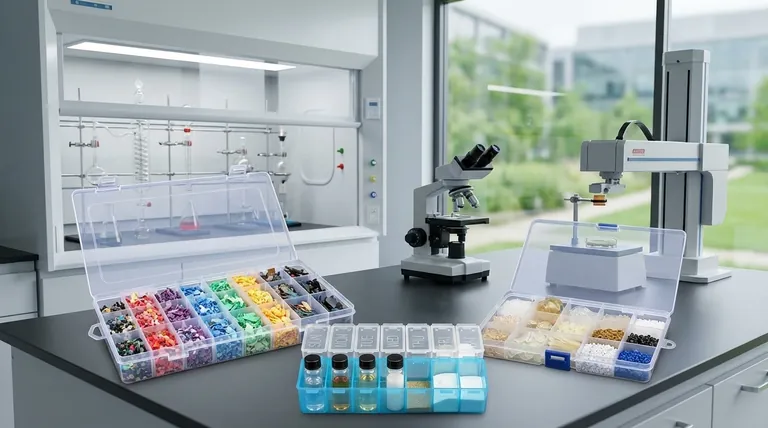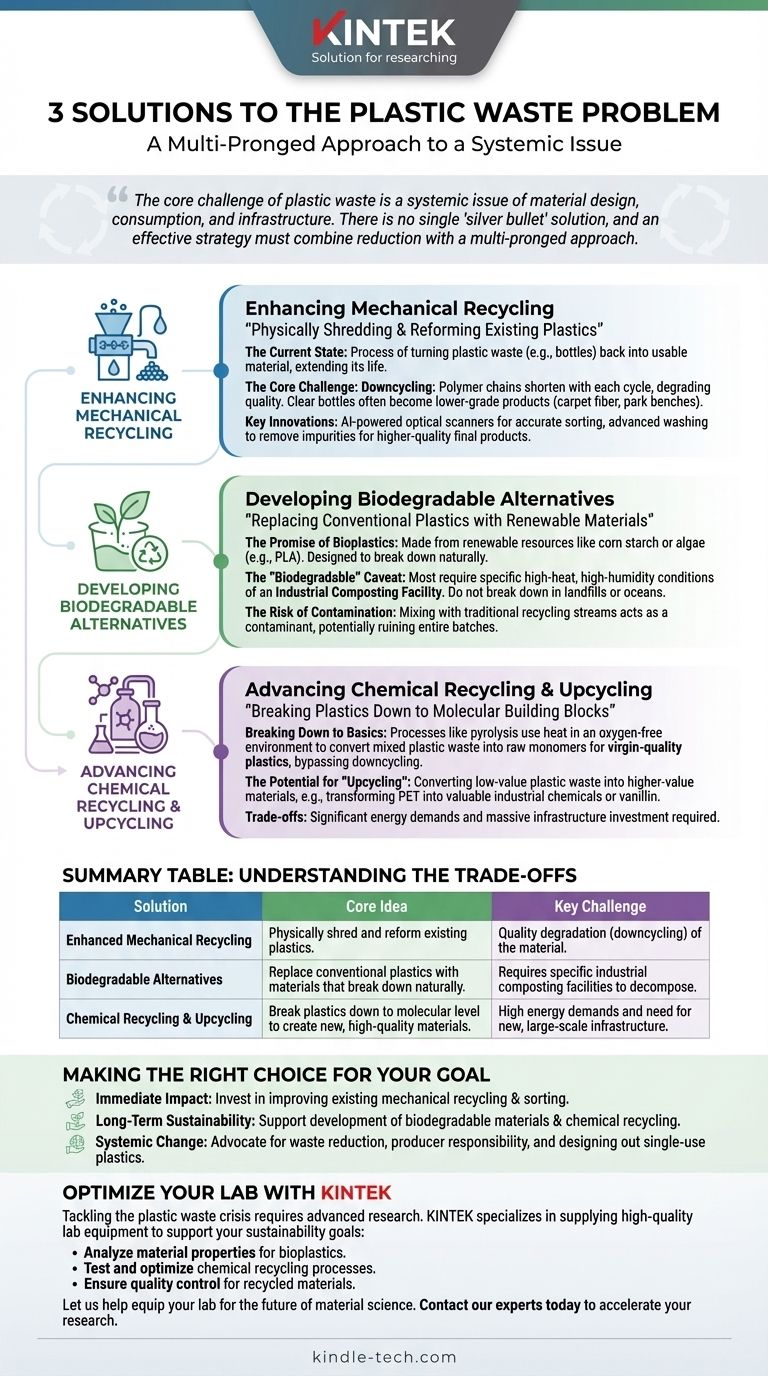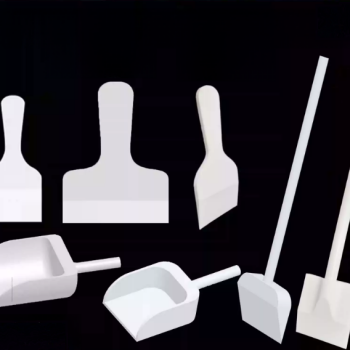As três soluções principais para o problema do lixo plástico são o aprimoramento da reciclagem mecânica tradicional, o desenvolvimento e a expansão de alternativas biodegradáveis e o avanço de novas formas de reciclagem química e upcycling. Cada abordagem visa uma fase diferente do ciclo de vida do plástico, desde a melhoria da forma como lidamos com o lixo existente até a mudança fundamental dos materiais que usamos.
O desafio central do lixo plástico não é apenas o descarte; é uma questão sistêmica de design de materiais, consumo e infraestrutura. Não existe uma única solução "bala de prata", e uma estratégia eficaz deve combinar a redução do nosso consumo geral com uma abordagem multifacetada para gerenciar o lixo que não podemos evitar.

Solução 1: Aprimorando a Reciclagem Mecânica
A reciclagem mecânica é o método mais estabelecido para processar lixo plástico. Envolve triturar fisicamente, lavar, derreter e reformar o plástico em novos grânulos para fabricação.
O Estado Atual da Reciclagem Mecânica
Este é o processo com o qual a maioria das pessoas está familiarizada — colocar uma garrafa plástica em uma lixeira de reciclagem. O objetivo é transformar essa garrafa de volta em um material utilizável, estendendo sua vida útil e reduzindo a necessidade de plástico virgem.
O Desafio Central: Downcycling (Reciclagem de Baixa Qualidade)
A principal limitação da reciclagem mecânica é o downcycling. Cada vez que o plástico é derretido e reprocessado, suas cadeias de polímeros encurtam, degradando sua qualidade e resistência. Isso significa que uma garrafa de água transparente raramente se torna outra garrafa de água transparente; é mais provável que se torne um produto de qualidade inferior, como fibra de carpete ou um banco de parque.
Inovações Chave para Melhoria
Para combater o downcycling, os esforços se concentram em melhor classificação e limpeza. Scanners ópticos movidos a IA podem identificar e separar diferentes tipos de plásticos com muito mais precisão do que os classificadores humanos, reduzindo a contaminação. Processos de lavagem avançados também podem remover mais impurezas, resultando em um produto final de maior qualidade.
Solução 2: Desenvolvendo Alternativas Biodegradáveis
Esta abordagem se concentra em substituir os plásticos convencionais à base de petróleo por materiais projetados para se decompor naturalmente no meio ambiente.
A Promessa dos Bioplásticos
Os bioplásticos são feitos de recursos renováveis, como amido de milho, cana-de-açúcar ou algas. O exemplo mais comum é o Ácido Polilático (PLA), frequentemente usado em copos descartáveis e recipientes de alimentos. O objetivo é criar materiais que não persistam no meio ambiente por séculos.
A Ressalva "Biodegradável"
Uma distinção crítica é que a maioria dos plásticos "biodegradáveis" ou "compostáveis" não se decompõe em um aterro sanitário ou no oceano. Eles exigem as condições específicas de alto calor e alta umidade de uma instalação de compostagem industrial, que ainda não estão amplamente disponíveis.
O Risco de Contaminação
Se bioplásticos como o PLA forem misturados por engano no fluxo de reciclagem de plástico tradicional, eles atuam como contaminantes. Como eles têm uma composição química e um ponto de fusão diferentes, podem estragar um lote inteiro de plástico reciclado à base de petróleo, destacando a necessidade de rotulagem clara e educação do consumidor.
Solução 3: Avançando a Reciclagem Química e o Upcycling
A reciclagem química é um conjunto emergente de tecnologias que usa processos químicos, calor ou catalisadores para decompor os plásticos em seus blocos de construção moleculares originais.
Decompondo o Plástico em Elementos Básicos
Processos como a pirólise usam calor elevado em um ambiente sem oxigênio para converter lixo plástico misturado de volta em um óleo líquido ou monômeros brutos. Essas matérias-primas podem então ser usadas para criar novos plásticos de qualidade virgem, contornando completamente o problema do downcycling.
O Potencial para "Upcycling"
Um conceito mais avançado é o upcycling, que visa converter lixo plástico de baixo valor em materiais de maior valor. Por exemplo, pesquisadores estão usando enzimas projetadas e processos químicos para transformar PET (o plástico em garrafas de água) em produtos químicos industriais valiosos ou até mesmo vanilina, o principal componente do sabor de baunilha.
Compreendendo as Compensações
Nenhuma solução é perfeita, e cada uma traz desafios significativos que devem ser abordados para que seja eficaz em escala global.
A Lacuna de Energia e Infraestrutura
Tanto a classificação mecânica avançada quanto a reciclagem química exigem energia significativa e um enorme investimento em nova infraestrutura. Além disso, a expansão das alternativas biodegradáveis exige a construção de um sistema paralelo de instalações de compostagem industrial para processá-las corretamente.
A Causa Raiz: O Superconsumo
Em última análise, a reciclagem e a inovação de materiais abordam apenas a parte do "fim da vida útil" do problema. Sem um esforço simultâneo e agressivo para reduzir a produção e o consumo de plásticos de uso único, essas soluções terão dificuldade em acompanhar o volume de lixo gerado.
Fazendo a Escolha Certa para o Seu Objetivo
O caminho ideal a seguir depende da combinação dessas estratégias para abordar diferentes aspectos da crise do lixo plástico.
- Se o seu foco principal for o impacto imediato: Invista na melhoria da infraestrutura de reciclagem mecânica existente e na aplicação de melhores práticas de separação pública para maximizar o valor dos materiais já em circulação.
- Se o seu foco principal for a sustentabilidade a longo prazo: Apoie o desenvolvimento e a expansão de materiais verdadeiramente biodegradáveis e as tecnologias de reciclagem química necessárias para criar uma economia de plástico totalmente circular.
- Se o seu foco principal for a mudança sistêmica: Defenda políticas que priorizem a redução de resíduos, responsabilizem os produtores por todo o ciclo de vida de seus produtos e eliminem os plásticos de uso único desde o início.
Um futuro bem-sucedido depende de uma estratégia multifacetada que reduza nossa dependência de plástico, melhore a forma como o gerenciamos e inove a própria natureza de nossos materiais.
Tabela de Resumo:
| Solução | Ideia Central | Desafio Principal |
|---|---|---|
| Reciclagem Mecânica Aprimorada | Triturar e reformar fisicamente os plásticos existentes. | Degradação da qualidade (downcycling) do material. |
| Alternativas Biodegradáveis | Substituir plásticos convencionais por materiais que se decompõem naturalmente. | Requer instalações de compostagem industrial específicas para se decompor. |
| Reciclagem Química e Upcycling | Decompor os plásticos ao nível molecular para criar novos materiais de alta qualidade. | Altas demandas de energia e necessidade de nova infraestrutura em grande escala. |
Otimize o Papel do Seu Laboratório na Inovação de Materiais com a KINTEK
Enfrentar a crise do lixo plástico exige pesquisa avançada e análise precisa de materiais. Se você está desenvolvendo novos polímeros biodegradáveis, otimizando processos de reciclagem ou explorando caminhos de upcycling químico, ter o equipamento de laboratório certo é crucial para o sucesso.
A KINTEK é especializada no fornecimento de equipamentos de laboratório e consumíveis de alta qualidade para apoiar seus objetivos de sustentabilidade. Fornecemos as ferramentas necessárias para você:
- Analisar propriedades do material e taxas de degradação de bioplásticos.
- Testar e otimizar processos de reciclagem química e pirólise.
- Garantir o controle de qualidade para materiais reciclados e novas formulações de polímeros.
Permita-nos ajudá-lo a equipar seu laboratório para o futuro da ciência dos materiais. Entre em contato com nossos especialistas hoje mesmo para discutir como nossas soluções podem acelerar sua pesquisa e contribuir para uma economia circular.
Guia Visual

Produtos relacionados
- Caixa de Armazenamento de Baterias tipo Moeda para Laboratório de Baterias
- Fabricante Personalizado de Peças de PTFE Teflon Usinadas e Moldadas para Limpeza de Vidro Condutor ITO FTO de Laboratório Cesto de Flores
- Moinho de Bolas de Laboratório com Jarro e Bolas de Moagem em Liga Metálica
- Fabricante Personalizado de Peças de PTFE Teflon para Cremalheiras de Limpeza
- Fabricante Personalizado de Peças de PTFE Teflon para Colheres de Pó Químico Resistente a Ácidos e Alcalinos
As pessoas também perguntam
- Por que os materiais de PTFE são especificados para testes de REH alcalina? Garanta o desempenho e a precisão de catalisadores de alta pureza
- Como o lixo plástico difere de outros tipos de lixo? A Ameaça Oculta dos Microplásticos
- Quais são as vantagens de usar aço inoxidável de alta qualidade para células experimentais de bateria de zinco-ar? Garanta a precisão.
- Qual é a função dos revestimentos de PTFE na hidrólise alcalina? Garanta a Reciclagem Pura de PET e Proteção Contra Corrosão
- Por que uma caixa de luvas de argônio é necessária para a montagem de baterias LTPO? Garanta ambientes inertes de alta pureza para pesquisa de íon-lítio






